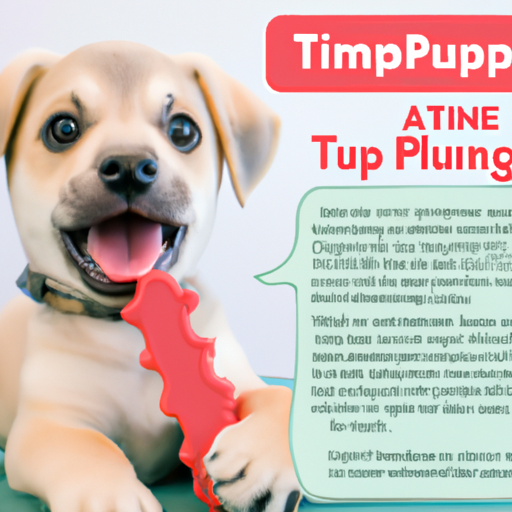Welcome! If you’re reading this, you probably have a teething puppy on your hands. This guide aims to provide you with comprehensive and helpful insights on dealing with a teething puppy.
Understanding Puppy Teething
Just like human babies, puppies also go through a teething period as they grow. This is when puppy teeth, also known as milk teeth, are replaced by permanent adult teeth. This process can cause discomfort and lead to certain behaviors such as chewing, drooling, and even slight changes in eating habits.
Recognizing the Signs of a Teething Puppy
To help your puppy through this challenging time, it’s important to be able to recognize the common signs of teething:
- Excessive chewing
- Increased drooling
- Decreased appetite
- Red, swollen gums
- Visible new teeth
How to Soothe a Teething Puppy
Once you’ve identified that your puppy is teething, here are some ways to soothe their discomfort:
Offer Chew Toys
Provide your puppy with plenty of chew toys. This not only soothes their gums but also protects your belongings from their newfound chewing habit.
Use Cold Items
Just like with human babies, cold items can help relieve gum discomfort. Consider freezing a wet washcloth or purchasing specialized puppy teething toys that can be frozen.
Maintain a Balanced Diet
While your puppy may show less interest in food, ensuring they receive a balanced diet is crucial. You may want to soften their food with warm water to make it easier for them to eat.
Puppy-Proof Your Home
Puppies, especially teething ones, will chew on anything. Here are some tips to puppy-proof your home:
- Keep electrical wires out of reach
- Remove small, chewable items from the floor
- Secure all cabinets and doors
Training Your Puppy During Teething
Training your puppy to chew only on their toys and not your belongings is a crucial part of their development. Here are some tips:
- Use positive reinforcement: When your puppy chews on their toys, praise them and offer a small treat.
- Redirect their chewing: If they start to chew on something they shouldn’t, redirect them to a chew toy.
When to See a Vet
While teething is a normal part of a puppy’s development, certain signs warrant a visit to the vet:
- Persistent loss of appetite
- Excessive drooling
- Bleeding gums
- Fever
FAQ
1. What age do puppies start teething?
Puppies typically start teething around 3 to 4 months of age.
2. How long does the teething process last?
Teething generally lasts until a puppy is about 6 to 7 months old.
3. What can I give my puppy for teething pain?
You can provide your puppy with chew toys, cold items, and even over-the-counter puppy pain relief if recommended by a vet.
4. Is it normal for my puppy to lose appetite during teething?
Yes, a slight decrease in appetite is normal. But if it’s persistent or accompanied by other symptoms, a vet should be consulted.
5. My puppy is chewing on everything. Is this normal?
Yes, excessive chewing is a common sign of teething. Redirect them to chew toys and puppy-proof your home to protect your belongings.
Taking care of a teething puppy can be a challenge, but with patience, understanding, and the right tools, you can help your puppy navigate this uncomfortable stage with ease. Remember, every puppy is unique and what works for one might not work for another. Always consult with a vet if you have concerns about your puppy’s health or behavior.



